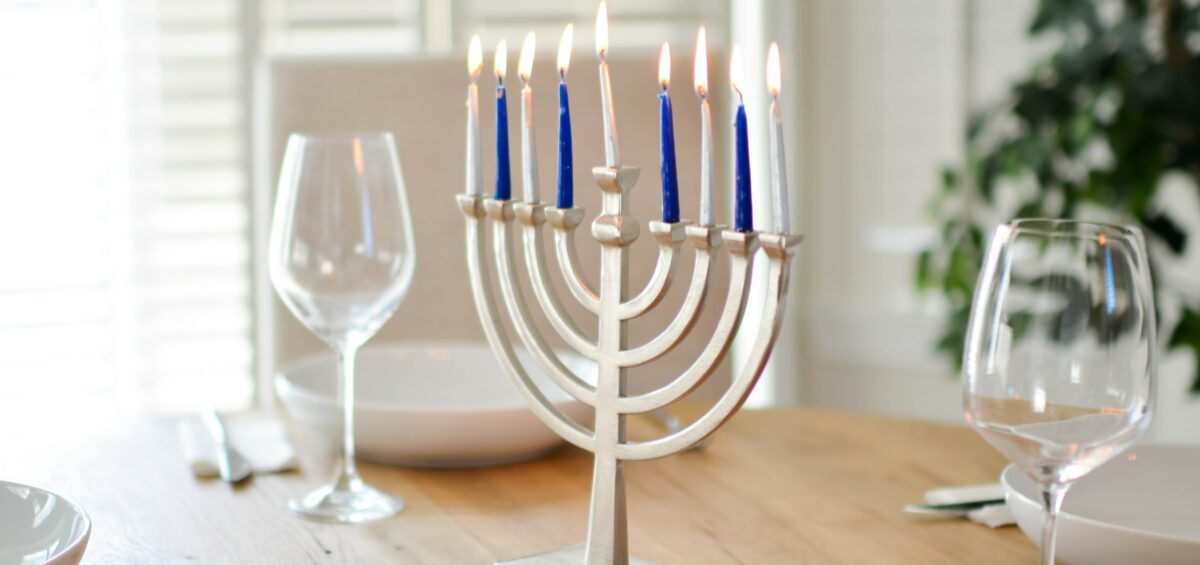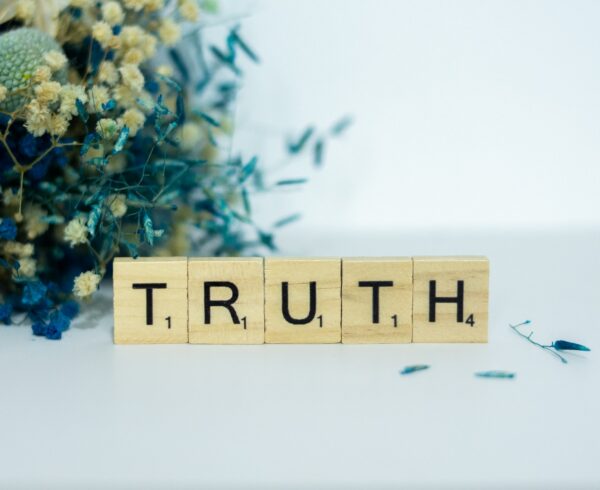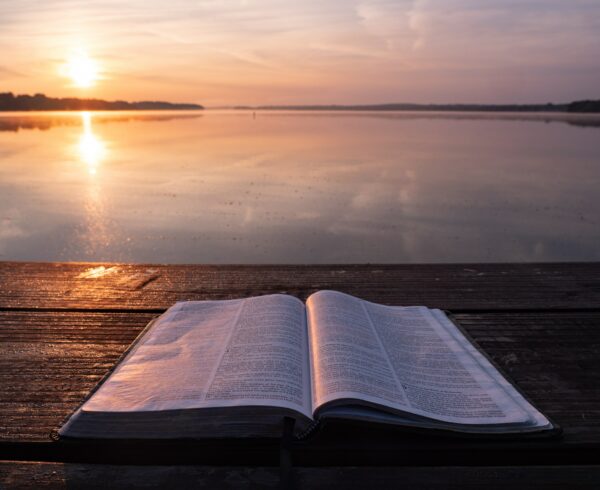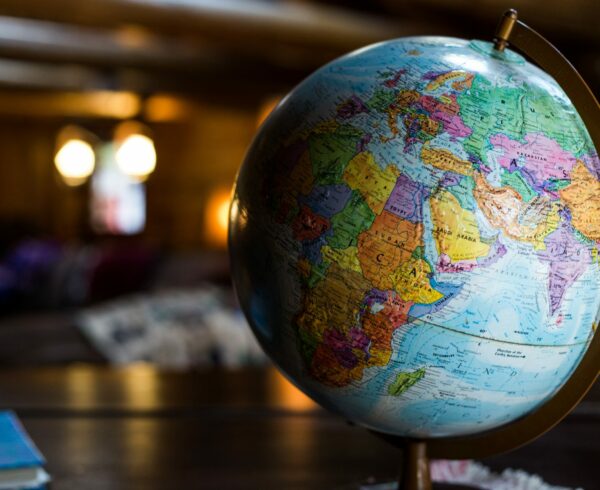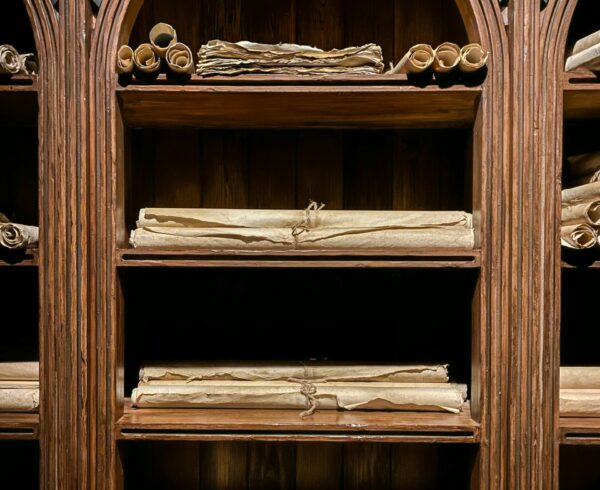Imagine you are a Hebrew living in the 2nd century BCE in Israel. You are currently under occupation by a foreign nation. The remnants of the former Greek empire had invaded the land of your forefathers a century earlier. Judaism was eventually outlawed, and an alter was erected in your temple to the Greek god Zeus. That is until recently. Something happens that ignites hope again in your people and will be remembered for future generations.
As a Hebrew, your identity is intricately intertwined in your national history. And your national identity is deeply wrapped up in your cultural/religious identity. In fact, they are inseparable. To violate one is to violate the others.
Imagine, that in a small village in Israel your family pulls together in a quiet place in their home. And what they proceed to do is something their relatives and ancestors have been doing for thousands of years.
They told their story. Because telling their story is what kept them remembering what made them Hebrews.
Their story begins with a man named Abram. Abram was visited one evening by a divine presence, a presence his descendants would later refer to as Yahweh (I am who I am).
According to the story, Yahweh the god of the Hebrews visited Abram and told him that he would make his nation a great nation, that he would bless him and his descendants and that they would be a blessing. He said that through Abram’s descendants (whose name was later changed to Abraham), he would bless all the nations of the earth. Yahweh also promised them a land to find refuge in so that they could worship him freely.
Fast forward and this great promise given to the Hebrews would be called into question by the troubling circumstances they would find themselves in.
About three hundred years after Yahweh gave the promise, the Hebrews had become slaves in Egypt. They were forced into hard labor for the Egyptian Pharaoh to build up his royal cities. They cried out to God to rescue them day after day. But Yahweh was silent.
After 400 more years had passed, a Hebrew named Moses was born. Yahweh chose to use him to rescue his people out of Egypt. When Moses got older, he met with Pharaoh and told him that the god of his fathers had ordered him to let his people go. After Pharaoh refused to let the Hebrews go free, Yahweh raised up 10 plagues against him and the Egyptian people. Because of the worsening economic and living conditions due to the plagues, including the loss of his own son, Pharaoh eventually conceded and let Israel go free. They set off to the land of their forefathers, but along the way Pharaoh had a change of heart and went after the Hebrews with his armies. Moses and his people had managed to get as far as the Red Sea. With the Egyptian armies closing in and nowhere to go, Moses raised his staff to the heavens and Yahweh parted the sea so that the Hebrews could cross on the sea floor. The Egyptians followed them and were gaining ground. After every Hebrew had gotten across to the other side, Yahweh caused the sea to come back together and Pharaoh and his armies drowned. The Hebrews continued their journey to the Promised Land. Along the way, Yahweh provided a Law of instruction for his people to follow to guide their way.
Fast forward. The Hebrews eventually became known as the Israelites, named after Israel, the name Yahweh changed to Abraham’s grandson Jacob. Israel means “one who wrestles with God.”
After Yahweh had rescued them from Egyptian slavery through his servant Moses, they wondered the Arabian Desert for 40 years. Yahweh provided food to eat, water to drink and clothing from the desert resources. It was clear to all his people, that Yahweh had demonstrated for them that he was present in their midst. A fire by night led them when they traveled and a cloud by day. They eventually arrived in the Land of their forefathers. Yahweh had kept his promise.
After hundreds of years of independence and freedom to practice their faith in Yahweh and follow his Holy Law (called Torah), they again found themselves slaves. Again, they were forced into exile in another nation’s land. Again, they cried out to Yahweh and reminded him that they were his people and he was their god. They reminded him of his promise to their forefathers. They raised their doubts and at times their fists because Yahweh had allowed them to become slaves again and forced to live in another nation’s land. It appeared once again as if Yahweh was silent. Some of their best-known musicians and song writers wrote passionate songs and prayers to Yahweh, asking him why he allowed the nations to rage against them (collected in the Book of Psalms in the Hebrew Scriptures). Why was Yahweh not keeping his promises?
Eventually, they were allowed to return to the land of their forefathers, and it appeared as if Yahweh was present again in their nation. But over the next several hundred years, that cycle continued. Another nation took control of Israel, and they were exiled in a foreign land.
First it was the Assyrians, then the Babylonians, then the Persians, then the Greeks.
Which is where we began our story. It was in the 2nd century BCE, Israel was occupied by remnants of the former Greek Empire (called the Seleucids) for the last hundred years. Instead of living in exile, they were permitted to remain in their land, but under the obligation that they would have to share their natural resources and pay taxes to the Seleucid emperor. For most of that time, they were permitted to worship how they wanted and maintain their religious and cultural practices, but an heir to the previous emperors rose to power named Antiochus IV who went a step further than his predecessors. He not only required taxes and resources, but he demanded that the Hebrews cease to worship Yahweh or continue their cultural practices as Jews.
So a priest by the name of Matthias Maccabeus and his five sons revolted against the emperor’s decree. Matthias’ son, Judah, led an armed guerilla style resistance against the Seleucid armies throughout Israel. They lost many battles but eventually they defeated the Seleucids. Antiochus IV, however, did not give up, and the Seleucid empire had many more military men to replace those lost. But Antiochus recognized that if he continued to wage war against the Hebrews, who were know known as the Jews, they would refuse to give up fighting. So he brokered a political deal with the Maccabeans. If the Hebrews would still pay taxes, they could practice their worship however they wanted, and generally have economic freedom. Judah agreed. Israel experienced semi-independent rule under the Maccabeans and their descendants for over a hundred years until the invasion of the Roman armies in the first century BCE.
One of the first things Judah did after the defeat of the Seleucids was that he went into the Temple in Jerusalem and tore down the alter and statue of Zeus. He then ordered that the Temple be purified.
One of the objects in the Temple was the lampstand. For the Temple to resume its usual work and worship, the lampstand had to have oil. However, there was only enough oil for one day. When the next day arrived, he discovered that the oil was still burning. In fact, it not only burned that second day; it burned a full 8 days. He and his family and the larger Jewish community of Israel believed that Yahweh had performed a miracle. What might seem like a small thing for outsiders looking in was quite a significant and meaningful occurrence for the Jewish people.
After the Temple had been completely purified, Judah dedicated the Temple to Yahweh. Then he made an official declaration that every year the Jewish people should remember what God had done by celebrating Hanukkah (meaning Dedication) for 8 days.
As you listen to your father and mother recount this Story of Hanukkah in a room in your house in the 2nd century, you learn that soon after that first Dedication (that first Hanukkah), the tradition began that Jewish families would light a menorah. The oil used in the latkes and other baked goods reminded your people of the oil that didn’t burn out in the Temple Lampstand. God still does miracles.
Your parents tell you that Hanukkah reminded them too that Yahweh had not given up on their people. And that God had kept his promise to their forefather Abraham. The Hebrews were after all blessed by God and that through them, all the nations of the earth would be blessed.
For us today: No matter what the condition or state of your faith, or perhaps which faith you identity with, Hanukkah is a reminder to us that the God of all creation may appear silent and distant at times. It may even feel that God has forgotten you. But don’t give up too soon.
Be patient. Keep looking. Keep praying. Keep space in your heart and in your days for God to show up and make himself known to you.
Prayers of Blessing during the Lighting of the Menorah
The first blessing is:
Baruch atah, Adonai Eloheinu, Melech haolam, asher kid’shanu b’mitzvotav v’tsivanu l’hadlik ner shel Hanukkah. (Blessed are You, Lord our God, King of the universe, who has sanctified us with His commandments, and commanded us to kindle the Hanukkah light.)
The second blessing is:
Baruch atah, Adonai Eloheinu, Melech haolam, she-asah nisim la’avoteinu bayamim hahem bazman hazeh. (Blessed are You, Lord our God, King of the universe, who performed miracles for our forefathers in those days, at this time.)
The third blessing is:
The third blessing is: Baruch atah adonai elohenu melech ha’olam, shehecheyanu, v’kiyimanu, v’higiyanu lazman hazeh. (Blessed are You, Lord our G‑d, King of the universe, who has granted us life, sustained us, and enabled us to reach this occasion.)
All 3 blessings are spoken the first night of Hanukkah during the lighting of the menorah, and only the first two blessings are spoken the remaining nights.
Photo by NIKON CORPORATION, NIKON D5100
Sources:
Hanukkah in Encyclopedia Britanica
The New Testament and the People of God by N.T. Wright
1 & 2 Maccabees in the Common Bible with Apocryphal-Deuterocanonical books

